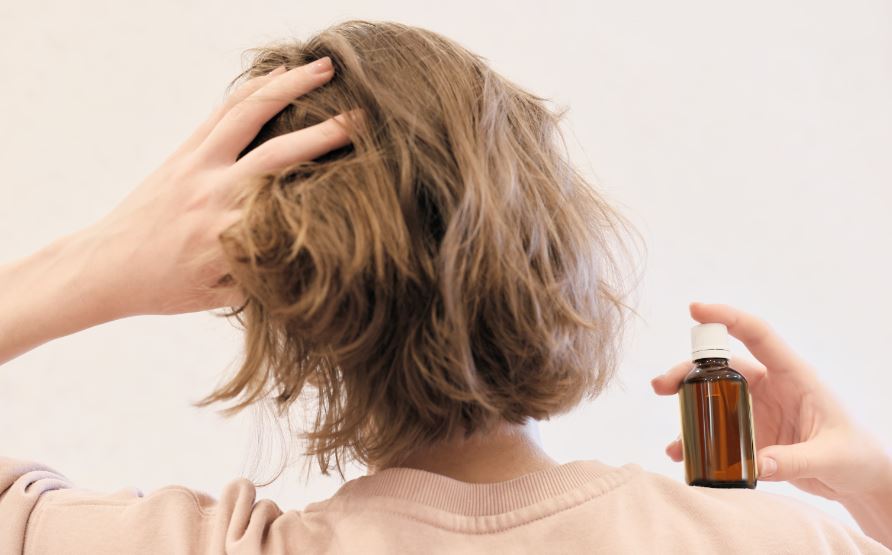Does Rosemary Oil Promote Hair Growth? Exploring Its Benefits and Scientific Evidence
As a professional in the beauty industry, you're likely always in pursuit of natural remedies that encourage healthy hair growth. One ingredient that is rapidly rising in popularity is rosemary oil. But the big question remains: does rosemary oil actually grow hair, or is it just another fleeting trend in the vast landscape of hair care products? Let's delve into this topic and examine how rosemary oil fits into the realm of hair care, the science supporting its efficacy, and how you might incorporate it into your treatment routines.
The straightforward answer is yes rosemary oil has the potential to stimulate hair growth. With increasing interest from hairstylists, trichologists, and dermatologists alike, rosemary oil is stepping into the spotlight for its ability to combat hair thinning and enhance overall scalp health. Importantly, this isn't just conjecture; there is scientific evidence to substantiate its effectiveness against certain types of hair loss.
:max_bytes(150000):strip_icc()/almond-oil-for-hair-5200368_51-706f14aabfd34a069ec08215967c387d.jpg)
How Does Rosemary Oil Contribute to Hair Growth?
To grasp how rosemary oil aids in hair growth, we must first consider its active ingredients and their respective effects. Rosemary oil is rich in antioxidants, anti-inflammatory elements, and antimicrobial compounds that collaboratively foster a healthy environment for hair growth.
Boosts Scalp Blood Circulation
A significant advantage of rosemary oil is its ability to improve blood circulation in the scalp. When used topically, it increases the delivery of oxygen and nutrients to hair follicles, promoting the growth of thicker, stronger hair strands.
Protects Hair Follicles from Damage
Studies indicate that free radicals and oxidative stress significantly contribute to hair follicle damage and thinning. The antioxidant properties of rosemary oil help protect hair follicles by neutralizing these free radicals and reducing damage.
Regulates DHT Levels
Hair loss conditions, particularly androgenetic alopecia (common pattern baldness), are often associated with elevated levels of DHT (dihydrotestosterone). Rosemary oil has been shown to lessen the impact of DHT on hair follicles, making it a natural substitute for pharmaceutical solutions like minoxidil.
What Does Research Reveal About Rosemary Oil and Hair Growth?
Unlike many haircare fads lacking in evidence, studies have demonstrated the effectiveness of rosemary oil in promoting hair growth. A 2015 study that compared rosemary oil with 2% minoxidil revealed that after six months of consistent application, both treatments resulted in similar hair regrowth for patients suffering from androgenetic alopecia. Remarkably, rosemary oil was associated with fewer instances of scalp irritation.
Another encouraging study from 2013 outlined rosemary oil's anti-inflammatory and circulation-boosting propertiescritical factors in fighting hair thinning. This growing body of evidence is why beauty professionals are eager to integrate rosemary oil into their treatment offerings.
Incorporating Rosemary Oil into Professional Hair Treatments
For beauticians, knowing how to apply rosemary oil is vital for creating customized treatment plans for clients. Here are some top methods for infusing rosemary oil into professional hair care services:
Scalp Massage Treatment
Combine a few drops of rosemary essential oil with a carrier oil, such as coconut, jojoba, or argan oil. Heating the mixture slightly before using it in scalp massages can enhance blood flow and impart relaxation. These massages not only boost circulation but also alleviate tension headachesa perk your clients will appreciate!
Enhancing Hair Masks
Add a few drops of rosemary oil to your preferred hair mask formulas. For instance, integrating it into avocado or banana-based masks can enhance their benefits, promoting both scalp vitality and deep hydration for hair strands.
Shampoo Enrichment
Incorporating rosemary oil into shampoos is another effective method for maximizing its advantages. Many beauticians recommend adding a few drops to sulfate-free shampoos to avoid dryness while promoting scalp health.
Who Stands to Benefit Most from Rosemary Oil?
While rosemary oil offers benefits to a wide audience, it's particularly suitable for clients experiencing hair thinning, early signs of alopecia, or conditions such as dandruff and itchy scalps. Those with sensitive skin may also find it more tolerable compared to artificial hair growth treatments.
Diverse Hair Types
This versatile oil is effective across various hair types, from straight and wavy to curly and coily textures. However, it's always wise to conduct a patch test before introducing it to a client's hair regimen.
For more insights on selecting the best oils for different hair types, explore this guide.
Additionally, to learn about natural methods to tackle common hair concerns, consider reading this article on hypoallergenic products.
Are There Any Risks Associated with Rosemary Oil?
While rosemary oil is generally regarded as safe, using it appropriately is crucial to avoid any negative reactions. Always dilute rosemary essential oil with a carrier oil and refrain from applying it directly to the scalp. Clients with allergies to rosemary or related botanicals, such as mint and sage, should steer clear of its use.
For further safety tips regarding oils for hair treatments, check out this comprehensive guide.

Common Questions
1. How long will it take to see results from rosemary oil?
Generally, visible results from using rosemary oil are seen after three to six months of consistent application. Patience and dedication are essential.
2. Is it safe to use rosemary oil daily?
While rosemary oil can indeed be beneficial, its best to use it 2-3 times a week to avoid overwhelming the scalp with excessive oil. Overapplication may lead to build-up or irritation in some individuals.
3. Is rosemary oil effective for all types of hair loss?
Rosemary oil is particularly beneficial for early-stage alopecia and general hair thinning. Its effectiveness may diminish in more advanced hair loss scenarios where follicles are inactive.
By integrating rosemary oil into your professional toolkit, you can offer clients a safe, natural alternative to chemical-laden treatments. For deeper insights into how using oils can transform hair care practices, visit this resource.
This article contains affiliate links. We may earn a commission at no extra cost to you.

